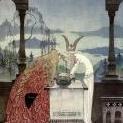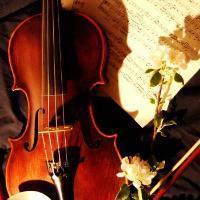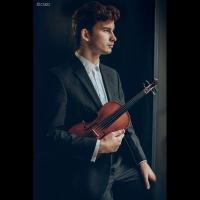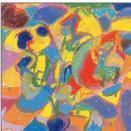Leaderboard
Popular Content
Showing content with the highest reputation on 06/19/2023 in all areas
-
The competition is now closed to further entries! Starting Sunday June 18th, 2023 and running until Sunday, August 13th , 2023 Young Composers Forum invites you to participate in yet another new and unique music composition competition hosted by @Thatguy v2.0, @PeterthePapercomPoser, @Henry Ng Tsz Kiu, @Omicronrg9, and @chopin, all of whom will also judge the competition. Dreams pervade our lives in a myriad of ways. Symbolic dreams, prophetic dreams, anxiety dreams, and lucid dreams are just some among our repertoire of night-time excursions. In this competition, the oneironauts (dream explorers) are tasked with writing a piece (or song) for one monophonic instrument (or voice) and one polyphonic instrument, based around the idea of dreaming, a specific type of dream, a particular dream that the oneironaut wants to share in their music, or depicting a famous dream story or poem such as Edgar Allan Poe's "A Dream Within a Dream". The way in which each oneironaut chooses to do this is totally up to their particular taste and interpretation, the only strict guideline being the instrumentation. The monophonic instruments (or voice) which are allowed include even string instruments which can play multiple notes at once, but do not customarily do so all the time (such as the Violin, Viola, Cello or Contrabass). And possible polyphonic instruments include but are not limited to: Piano, Harp, Guitar, Accordion, Organ, Harpsichord, and etc. Edit: Midi keyboard synthesizers are allowed as long as the part can be performed by a human being. Delay effects are also allowed, although looping pedals are not as they would defeat the purpose of writing for one instrument. The submissions will be judged on a scale of 0 - 10 in the following 8 categories: The scoring categories are pretty self-explanatory. The Taste category is for the judges to score how much they personally enjoyed any given composition, while the other categories are expected to be scored more objectively. The oneironauts names will not be revealed to the judges until the judging is complete. The prizes will consist of $100 1st prize, $50 2nd prize and $25 3rd prize regardless of the number of participants. Also, if there will be any popular voting polls they will not include 1st, 2nd and 3rd place picks as the judges have determined that this portion of the competition may have been a bit redundant in the past. In order to compete: Your composition must not exceed 15 minutes of music and must be at least 3 minutes long If you are a new member, please submit an unrelated original piece of music to the forum to qualify (create a new topic) Your composition must be somehow based on dreams Instrumentation must be for only 1 monophonic instrument (or voice) and only 1 polyphonic instrument No age limit One submission per participant Mp3 submission and score/sheet music pdf required including a description $100 1st prize, $50 2nd prize, $25 3rd prize Deadline: Sunday, August 13th, 2023 Submissions are to be sent to @PeterthePapercomPoser through direct message with the title of the composition as the subject line. He will post the submissions anonymously in a special contest thread for everyone to listen to and consider. Besides attaching a pdf score (without your name in it) and mp3 rendition of your music you must also include a description of your piece for the judges, fellow competitors and young composers at large to better understand your music. How did you incorporate the idea of dreaming into your music? Feel free to include the description of the dream, dream story or dream poem that you used. To view the submissions thread go here: To view the results and winners thread go here: To take the "Dreamscapes" Satisfaction Survey go here: To vote in the popular voting polls go here: Current Entrants: (reply to this thread in order to enter) @expert21 @Bacon Danger @ComposaBoi @Left Unexplained @IanBoins @veps @Samuel1 @AlexeySavelyev @PCC @GreenGiantCanOfCorn @Michalis @44W74l4 @SorooshMHS @jojojo @popsinn @Beethoven is God @Jordan Jinosko @Camfrtt @AngelCityOutlaw @MusicianXX12 @bkho @ComposedBySam @Samuel_vangogh @NicholasG @Minerscale @José de Azevedo Souza @Composer from Europe @spike473 @Paweł Siek @Sergio Moreno @Irene Huang @MTK5 points
-
Hello Guys, This is a new one. It's a kind of romantic music piece. What do you think?2 points
-
2 points
-
2 points
-
If you want to compose in the baroque style, the most logical thing to do would be to research how composers like Bach learned how to compose when they were young and then for you to use the same pedagogical methods that they did. J.S. Bach himself taught his students in this way: his students would learn how to harmonize chorale melodies which they would be given. At first, Bach would provide a bass part to the given chorale melody and the students would have to fill in the tenor and alto parts. Later on, the students had to compose the bass part themselves. But more importantly, composition students in the Baroque era were taught the practice of thorough-bass. This was an accompanimental practice where the keyboardist was given a bass part (played in the left hand) that included figures which indicated which harmonies to play in the right hand. This right-hand part was essentially improvised (but in accordance with the underlying harmonic structure and the rules of composition). The student was required to learn the principles of composition (voice-leading, preparing and resolving dissonance, etc.) so thoroughly that he was able to apply them in real-time when improvising these thorough-bass accompaniments. The whole point of composition students learning this practice was so they assimilated the rules of composition so thoroughly that they became second-nature. There are various treatises which teach one how to learn the practice of thorough-bass, but perhaps most relevant is Friedrich Erhard Niedt's "The Musical Guide". There is evidence that J.S. Bach used this treatise when teaching his students. Besides this, you can find plenty of modern resources on this subject as well. As for the best way to improve your skill at composition, it would no doubt be through practicing the skill of improvisation; a skill which many of the greatest composers excelled at (including Bach, Mozart, and Beethoven). Learning how to improvise is like learning how to speak a language fluently (as opposed to merely learning how to read and write in that language). The more you practice improvisation, the more naturally that musical ideas will come to you. Improvisation is a powerful tool to generate musical ideas, allowing you to try out different ideas very rapidly, allowing you to hear them in real-time before you write those ideas down. Improvisation is a skill like any other in that it needs to be practiced; you get better at improvisation through actually practicing it. If you have not practiced improvisation before, start by trying to improvise very simple melodies, making use of just the I and V chords, then move on to more complex ideas as you gain experience. This was the advice that C.P.E. Bach gave: to become a good composer, it's better to learn how to be great at improvisation than to study the rules of composition (that is, studying through reading and written exercises). This was his reasoning: if you become great at improvisation, then it's merely a matter of writing down what you improvise at the keyboard in order to make a composition out of that improvised material. However, if you were only to learn the rules of composition through reading and written exercises, then you still wouldn't have gained the invaluable skill of improvisation through this kind of study. In other words, you naturally learn the rules of good composition by learning how to improvise well. If you have any questions about anything I mentioned, feel free to ask.2 points
-
1 point
-
Today I present here the third movement of my Symphony in E, just finished some days ago. Unlike the other two movements, which were composed 5 years ago and heavily and constantly revised until I posted them here, this one is actually a composition that has been done in the last 1-2 weeks and I think it's summarizes really well what I actually can do with a blank paper. It's almost 9 minutes long in a standart form (scherzo-trio-scherzo). The scherzo is more like the opposition beetwen two themes than appear many times with different modifications and character changes, and the trio is a calm section (almost in a Ländler way) being a way of getting away from turbulences in the scherzo. Actually my first motivation or starting idea was from Dvorak furiants and scherzi but ended up being something really different (but there's some evidences of this in some parts in the grouping of the bars or the accents that desestabilize the 3/4 bar. Also there's a lot of Mahler and Bruckner influence (especially in the very last bars). Hope you enjoy it! (other thing that I wanted to comment is that I uploaded the second movement in the wrong topic last time so I leave the link here so you can listen to it if you want: *Link*)1 point
-
Ending is very rushed, might revise. Intended to create a very short piece, this is more of a short experiment rather than an attempt at a more encompassing work.1 point
-
Even when composing a multi-instrument work, it's still often best to work it out on the keyboard first - at least for the outer parts (bass and soprano) and then later arrange it for different instruments. This is what I and many other composers do. But yes, if you use midi software, you won't be able to quickly try out different musical ideas like you would by improvising at the keyboard. The faster that you come up with and discard bad ideas, the quicker that you'll eventually come up with a good idea to expand upon. Often, I will compose the entire "rough draft" of a composition at the keyboard, and then I will plug the rough draft into Finale, then, making use of the playback feature in Finale, I'll make some changes to the composition here and there to polish it up. I should add that when students in the Baroque era were being taught how to play thorough-bass at the keyboard, they were only just starting to learn how to play the keyboard as well. Some teachers at that time even taught students how to play thorough-bass before they learned any full solo pieces for keyboard. This is because thorough-bass was considered the foundation of music (teaching one the fundamentals of composition) and a prerequisite to learning how to play music in general. Yes, when learning how to compose and improvise, one should begin with simple musical ideas (simple harmonically and structurally) that are easy to play. I have attached a few tiny pieces I composed which exemplify the kind of pieces that I'm talking about; the kind of pieces that beginners at composition should compose. When learning how to compose by studying the works of others, it's important to study works which are not too complex musically for your own skill level. You mentioned the easy pieces by J.C.F. Bach. I, personally, have used the pieces in the Notebook of Anna Magdalena Bach to study composition from. I have used these small pieces as models for my own compositions. For instance, I have composed several arias using BWV 515 as a model as well as using BWV Anhang 132 as a model for menuets.1 point
-
Link to first movement: The second movement to my C minor piano sonata is a work of great trial and error. For those just simply want to listen, please do. For those tempted by spoilers, here's such: I managed to record a semi-decent playing of the 3rd movement, so that should not take too long to be released later.1 point
-
Hi @olivercomposer, This is a lovely piece in simple ternary. It does remind me of Richard Clayderman's piano pieces. I love the C dorian opening! The aura there is really starry with that #^6 and making it brighter. The transition to 0:54 can be longer though for me. The middle section I feel like a pop melody repeating in different keys, and I think it's fine for this style, but maybe without the varying orchestral colour you can develop your materials here more! The music goes back at 1:45 and I think the retransition is better prepared here! I love that flat subdominant chord of G invading the territory. The ending is quite beautiful with the plagal cadence on G! Thanks for sharing! Henry1 point
-
Hi @PCC, This is for sure lovely playing. For me I feel like I get lost in the first Ab minor part, and only starts to get into the music more in the middle section. I love the C minor recap and start finding the themes! The mood for me is really difficult and confusing with good use of the Ab minor and the complex harmony. For me it may not be as expressive as 1st mov, and I somewhat get confused by this movement here in my 1st listening, but that's what the movement is about I think. For the ending I do feel like the Ab minor conclusion somewhat forced. Maybe rather just a bar you can have a longer coda? But after all the overall tonic is overwhelming, thus making a return to Ab minor quite unnecessary. Maybe you just end on C minor and go for an attaca transition to the finale Scherzo? I don't know! Again thanks for sharing your live recording of youe movement! I really appreciate this! Henry1 point
-
Hi this is a bit different than my usual Bagetelle and waltz but I thought I would give electronic music a chance! Enjoy!1 point
-
Hi @malumCompositor, For me this is quite enjoyable concerto in classical style. I especially love those tremolos accompaniments. What is the form for this finale? I think you can go for a rondo or sonata-rondo for it. For me most of the passages are in D major and only in the middle section you modulate to G major (which fits for the second episode of the rondo). I think you should include passages modulating to the dominant A major as well in this style. Also I find in many solo passages you only have the solo double bass playing, and this makes the music dry, and the sudden change of texture is abrupt. I think you can retain the tremolo accompaniment under the double bass solo. This won't overwhelm the solo but decorate it. For the cadenza, at the beginning of it usually has a I 6/4 chord in fermata, then the solo instrument goes into its own cadenza. Here before the cadenza it's also a solo passage, so no one will know the cadenza is coming!! For the end it's right to include a trill though to signify the return of the orchestra. Thanks for sharing, Henry1 point
-
@Henry Ng Tsz Kiu Great performance! 👏🏻👏🏻👏🏻 To piggyback on both of your comments regarding playability: I've also noticed that when you write what is playable, and even idiomatic, for an instrument, 99% of the time it's going to sound better than writing it in some "impossible-to-play" way.1 point
-
I really liked the orchestration and the pianistic approach to the piece! I understand this is sort of an exercise, but there isn't a lot I can complain about musicially at all, I will only say that the grandiosity of this orchestration deserves much more than 3 minutes1 point

.thumb.png.8b5b433a341551e913a34392660bc95b.png)






